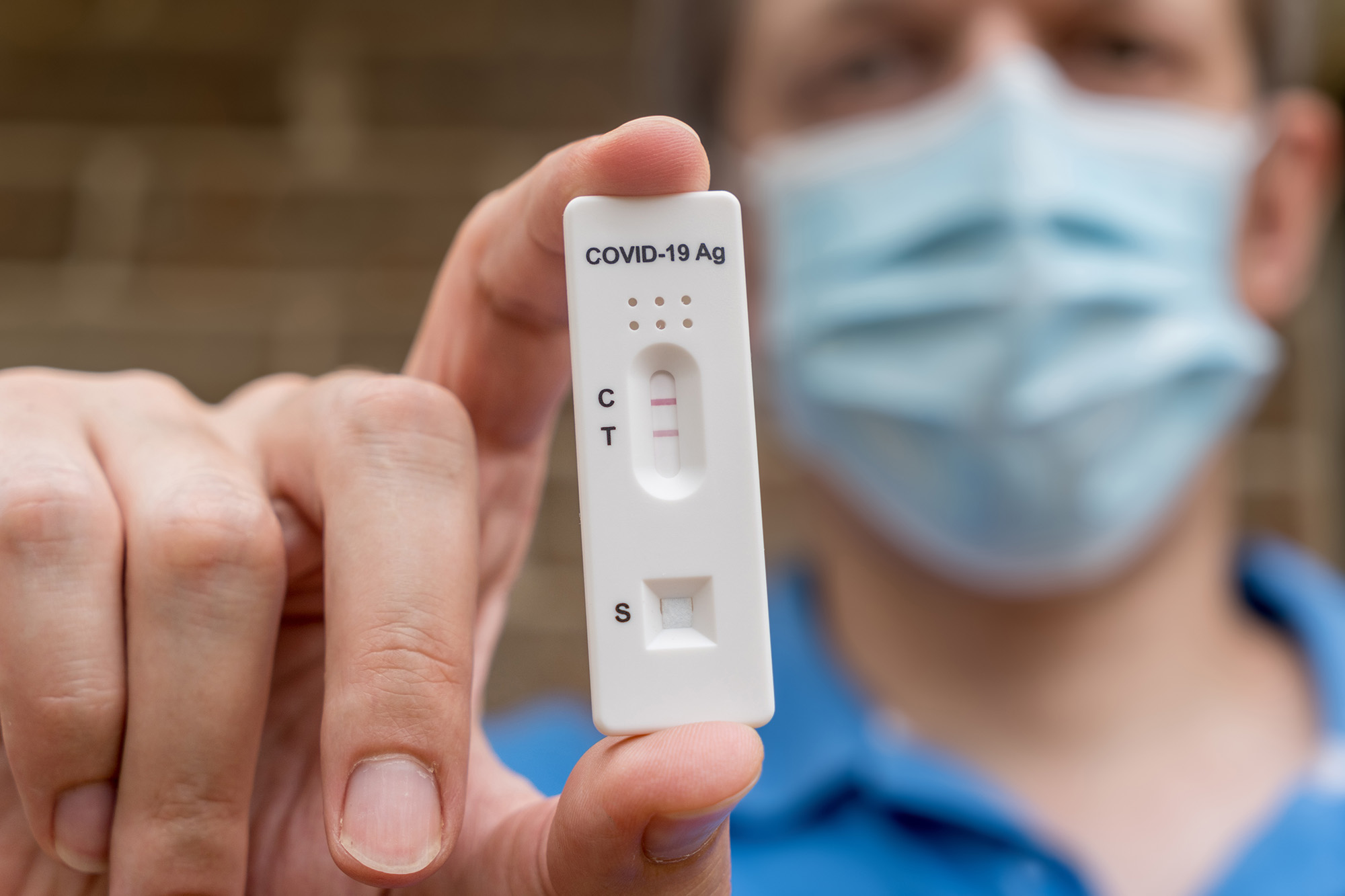
Most of you have decided to move on with your normal lives, accepting Covid risks. Many have experienced infections with wide-ranging symptoms and differing severities but were unaware of available, successful treatment options. We know fully-vaccinated families who were infected three times over 12 months as variants mutated, penetrating their immune systems over and over. Vaccines don’t always prevent infections but should reduce severe symptoms, hospitalizations, and deaths in most cases.
Eventually, each of us will likely experience Covid. More than 60% of the US population officially suffered coronavirus (many don’t report infections) and one million Americans have died. Our research shows multiple university virologists predicting a 2022 Fall-Winter surge infecting 100 million Americans! To prepare you and others, we developed this practical, research-based Covid avoidance-and-treatment guide; so, be ready and save this article!
Symptoms and Preparation
John Hopkins Medical School reports Covid symptoms to include cough, fever, chills, difficulty breathing, body aches, sore throat, nausea, diarrhea, headache, congestion/runny nose, loss of taste/smell, and/or fatigue. Scientists are puzzled why some individuals seem Covid-immune; others are symptom-free virus carriers; many have mild-moderate cold/flu-like effects, and some are hospitalized or die! We know that seniors with underlining health conditions such as diabetes and obesity are most vulnerable. Ensure your Covid vaccines include two shots and the booster.
Build relationships with experienced medical practices before needs arise and consult with professionals on recommended treatment strategies. If testing positive for Covid, ask your medical provider if an antiviral drug such as Pfizer’s no-cost Paxlovid (which requires a prescription) is appropriate for you. It’s a two-medicine combination to be taken within 5 days of symptom appearance. It’s 90% effective and most individuals improve within 2-3 days. Due to side effects, Paxlovid may not be appropriate for all individuals (e.g., those with heart conditions or taking blood thinners). Without treatment, new Omicron versions can last two weeks and one-fourth of those infected are experiencing “Long Covid” with side effects for months or even years!
When Covid-like symptoms appear, test immediately since new Omicron variants can surface 2-3 days after exposure. Order eight free tests (covid.gov/test) NOW and follow instructions carefully when using. Beware: home tests may not detect the newer variants and may give false-positive readings. Use both home and gold-standard, sensitive PCR Covid tests conducted by professionals (results in 2-3 days). If both tests are negative, you’re likely not infected, but if symptoms persist, test again. Once you and/or others test positive, the suggestions below will likely reduce symptom severity and Covid spread.
Covid in the Home
Living with Covid patients increases your infection chances to 50%! Isolate those infected in designated rooms with doors closed while using separate bathrooms. Provide plenty of reading materials, computer/cell-phone/zoom access, chargers, and television during isolation. Patients should avoid rooms with return-air vents (which spread germs throughout the home) and spend time outside in fresh air, weather permitting. Ensure oxygen levels are over 90% for everyone—some may be infected without symptoms. (Amazon sells O2 finger meters for $25, so order one now!)
Everyone in the home should wear quality KN95 masks that fit snugly to avoid contamination in shared rooms. Powecom KN95 FDA-approved masks are excellent (Amazon offers 10 for $15). Omicron variants are extremely transmissible, lingering in the air. Keep air flowing with ceiling and HVAC fans turned ON (not auto) 24/7. Open or crack doors/windows for fresh air. Employ mobile, inexpensive air-filtration systems with sanitizing HEPA filters. Professionals can install germ-killing UV lights in your home’s HVAC systems. However, if everyone in the home is infected, then some of the preventative measures, such as wearing masks, are not needed.
Don’t forget pets! The FDA determined, “While the chances are low, the virus that causes COVID-19 can spread from people to animals, mostly after close contact with people with COVID-19.” So, keep pets away from the infected.
Regularly sanitize high-contamination surfaces (light switches, car interiors, cellphones, door handles, computer keyboards, sink handles, table surfaces, etc.) which can retain germs, and also vigorously wash/sanitize hands. The CDC reports you may wash clothes together in hot water and heated dry. Avoid riding in cars with anyone infected unless double-masked, windows cracked, air fans ON, and inside-air circulation switch turned OFF to maintain fresh air in the vehicle. Beware that switching to the Max Air setting causes automatic inside circulation, preventing fresh, outside air from entering the automobile cabin!
In order to prevent their potential exposure, avoid allowing visitors into the home. Infected individuals and those around them should quarantine for 10 days to ensure the virus has left their bodies. If infected individuals are fever-free and both home self kits and PCR Covid tests are negative, then most likely you’re greenlighted! (However, dead viruses may linger in body, yielding false-positive tests.)
What to Eat and Drink to Reduce Symptoms and Speed Recovery
Covid negatively affects immune and nutritional systems which are paramount to supporting recovery. Many lose appetites or may be nauseated when nutrition is vital! Rest is important during infections and Harvard University Medical School recommends Advil or Motrin for pain relief. Gingerale is helpful for nausea.
Dehydration is a threat to Covid patients since it magnifies sickness, adds fatigue, and delays recovery. To stay hydrated, don’t gulp liquids but rather sip them throughout the day so the body absorbs them, aiming for 6-8 cups daily. Recommended liquids include water, tea with honey (if sore throat or coughing), broth, Vitamin C juices, chicken soup, electrolyte sports drinks, and Gatorade.
Vitamin D is critical to healthy immune systems. Infected persons might consider going outside with limited clothing, bathing in direct-sunlight 20-30 minutes early morning and late afternoon (without sunscreen which prevents Vitamin D absorption). NatureMade brand (3,000 units) is an excellent supplement.
Recommendations for foods to promote faster recovery include:
- Vitamin A (beef or chicken liver, goat cheese, sweet potatoes, collard greens, raw carrots, baby spinach).
- Zinc (ground beef, dark chocolate, canned oysters, cashew nuts).
- Omega-3 Fatty Acids (sardines cod liver oil, King mackerel, walnuts, salmon).
- Vitamin C (citrus fruit like strawberries, cauliflower, canned tomatoes, potatoes with skins, melons, sweet bell peppers).
- Vitamin D (cod liver oil, sardines, canned light tuna, salmon, and fortified orange juice).
When friends offer help, suggest some of the above drinks and foods that the infected prefers.
Hopefully, your infection will be mild, but the Cleveland Clinic warns if you experience breathing difficulties, persistent chest pain, confusion, bluish lips/face (indicating low oxygen levels when they dip below 90%), or other major problems, head to your ER.
The Bottom Line: Unfortunately, Covid is going to be around for years, and we must learn how to live with it. The good news is that new, targeted vaccine Covid boosters from Pfizer and Moderna should be available later in 2022. And there are 42 different ways to prevent Covid infections listed on our non-profit website www.mikedubose.com. Remember: “Hope for the best, plan for the worst, and pray!”
Mike DuBose has been an instructor for USC’s graduate school since 1985 when he began his family of companies. He is a contributing guest author for Midland's Biz and is the author of The Art of Building a Great Business. Please visit our blog for additional published business, travel, and personal articles, as well as health articles written with Surb Guram, MD.
© Copyright Mike DuBose. All Rights Reserved. We encourage you to share this information with others since our purpose is to “Create Opportunities to Improve Lives.”



